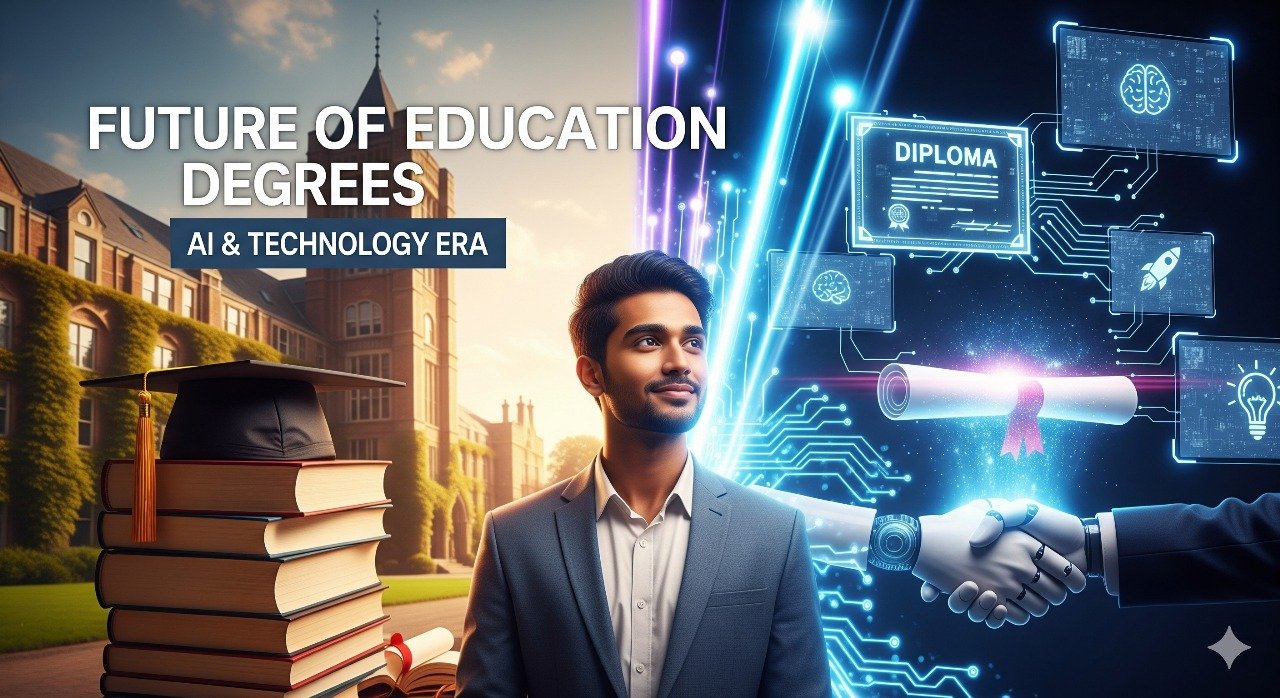
The landscape of education is undergoing a dramatic transformation. With the rapid rise of artificial intelligence (AI), digital tools, and advanced technology, the way students learn — and the way educators teach — is evolving faster than ever before. In this new era, education degrees such as B.Ed, M.Ed, B.LIS, and even subject-based programs like B.Sc and B.Com are gaining renewed significance. They are no longer just about traditional teaching methods; they are about preparing graduates for 21st-century classrooms that demand innovation, adaptability, and digital fluency.
Gone are the days when teaching was confined to chalkboards and textbooks. Today’s educators must integrate smart classrooms, e-learning platforms, and AI-driven tools into their practice. Education degrees are adapting to train future teachers not only in pedagogy but also in educational technology, digital literacy, and data-driven teaching methods.
Instead of replacing teachers, AI is empowering them. Automated grading, personalized learning platforms, and intelligent tutoring systems free up time for educators to focus on what truly matters — mentoring, guiding, and inspiring students.
Modern B.Ed and M.Ed programs now include training in:
Digital Pedagogy – using interactive apps, gamification, and online platforms.
AI-Assisted Learning Tools – understanding adaptive learning software that personalizes education for each student.
Virtual and Augmented Reality (VR/AR) – creating immersive classroom experiences.
Data-Driven Decision Making – using student performance analytics to improve teaching outcomes.
Global Collaboration Skills – preparing teachers to connect classrooms across borders through technology.
AI and technology are opening new frontiers for educational research. Education degree holders can now explore:
How AI personalizes learning paths for students.
The impact of technology on cognitive development.
Digital inclusivity and access to education for marginalized groups.
The role of teachers in balancing human interaction with technology.
This creates immense scope for M.Ed graduates and B.Sc students pursuing higher research in the intersection of technology and education.
With AI and technology reshaping the education sector, graduates with B.Ed, M.Ed, or related degrees now have opportunities beyond traditional classrooms. They can pursue careers as:
EdTech Specialists – designing and managing digital learning platforms.
Curriculum Designers – creating innovative tech-integrated lesson plans.
Instructional Designers – developing e-learning content for schools and companies.
Educational Researchers – studying the impact of AI on pedagogy.
Policy Makers in Education Technology – shaping national and global education systems.
AI and technology are transforming classrooms into interactive, personalized learning spaces.
Education degrees are evolving to include digital pedagogy and AI-based teaching skills.
Opportunities for research and innovation in education technology are growing rapidly.
Career paths for education graduates now extend to EdTech, instructional design, and global digital education.
The human role of educators remains irreplaceable — guiding, mentoring, and inspiring students.
The future of education degrees in the age of AI and technology is both exciting and full of possibilities. While technology continues to advance, the demand for well-trained, adaptive, and innovative educators will only increase. Education degrees are no longer about preparing teachers for the classrooms of yesterday — they are about empowering leaders for the classrooms of tomorrow.
At Scholars Group of Education, we embrace this change by ensuring our programs combine academic excellence, digital readiness, and research opportunities, preparing graduates to thrive in a technology-driven educational world.
The message is clear: In the age of AI, education degrees matter more than ever.